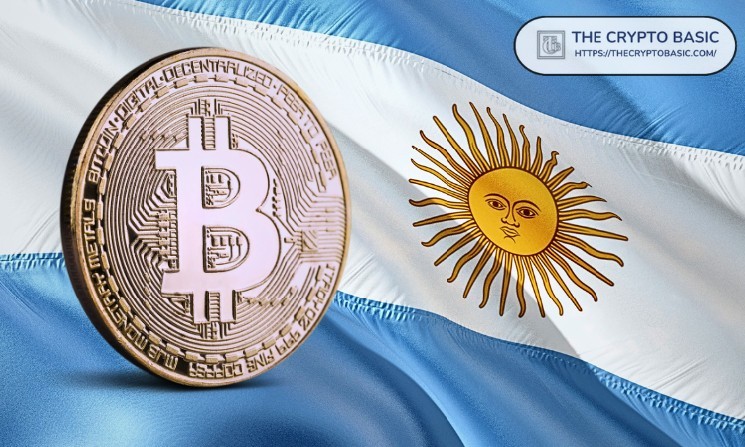Listen to the article
Argentines are increasingly turning to cryptocurrencies, particularly stablecoins, to safeguard their savings and profit amid renewed currency restrictions.
According to Bloomberg, as President Javier Milei tightens foreign exchange controls ahead of Argentina’s midterm elections, traders are exploiting price differences between the official and parallel peso markets. They earn up to 4% per transaction through a crypto-based arbitrage strategy known as the “rulo.”
Matthew Sigel, Head of Digital Assets Research at VanEck, highlighted the trend on X, noting that “Argentines pile into stablecoins to score quick arbitrage profit of up to 4% on each transaction.”
Ruben López, a Buenos Aires-based stockbroker, told Bloomberg that he executes this trade daily as a way to “protect myself from inflation.”
The surge in demand has been noticeable across local exchanges. For instance, crypto trading platform Ripio reported a 40% weekly increase in stablecoin-to-peso sales after the central bank barred individuals from reselling dollars for 90 days.
Similarly, Lemon Cash and Belo saw transaction volumes jump by over 50% as users rushed to exploit price gaps.
Crypto as Argentina’s Financial Lifeline
Argentina’s long history of debt defaults, inflationary shocks, and currency crises has led citizens to rely on crypto assets for stability.
While in the U.S., investors view crypto as a speculative tool, in Argentina and other parts of Latin America, it functions as a shield against volatility and government-imposed capital controls.
Local exchanges are facilitating this new form of financial resilience. Notably, Belo CEO Manuel Beaudroit said traders were earning between 3% and 4% per transaction in recent weeks. Meanwhile, he cautioned that such profits are “highly unusual.”
Bitso’s Argentina country manager Julián Colombo added that stablecoins have become a “vehicle to get cheaper dollars”. Colombo added that the lack of clear crypto regulations has allowed this rulo trade to flourish.
Despite Milei’s efforts to stabilize the economy, bringing annual inflation down from nearly 300% to around 30%, the peso has lost about three-quarters of its value since his administration devalued the currency.
“Stablecoins Are Here to Stay”
With elections approaching and investor confidence wavering, many Argentines are once again turning to crypto as a safe haven. Nicole Connor, head of Women in Crypto Argentina, said she avoids saving in pesos entirely:
“I keep my savings in crypto and stablecoins and try to generate returns with them.”
However, crypto gains are not without risks. Unlike stock market profits, crypto earnings face taxes of up to 15%. Moreover, frequent transactions can trigger scrutiny from banks demanding proof of funds.
Even with regulations and taxes making things difficult, Argentina’s increasing use of digital dollars shows a larger change in how people across Latin America handle money.
López stressed that the U.S. dollar holds a powerful role in Argentine society and that stablecoins have become a lasting part of the financial landscape.
“Stablecoins are here to stay; they’ve given us a refuge from the national currency,” he said.



